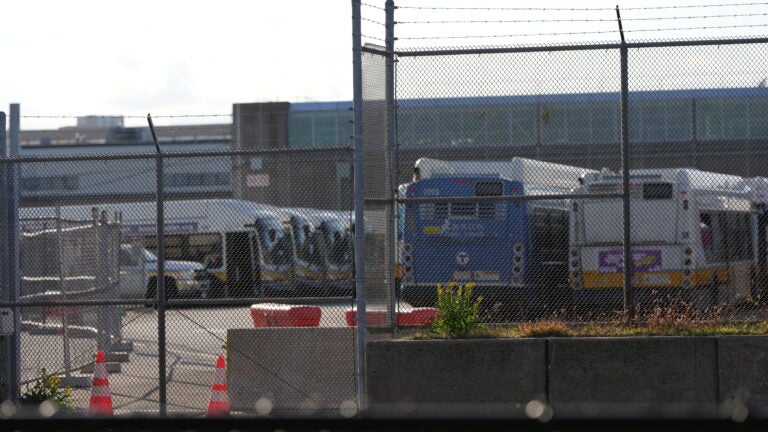Transportation
The MBTA’s campaign to eliminate speed restrictions is “a commitment to not only rebuilding our infrastructure today, but making sure that we maintain that system,” General Manager Phil Eng said.
Once beset by persistent delays, an unceremonious shutdown, and a now-infamous 2022 fire, the Orange Line is running free of slow zones for the first time in 15 years, MBTA General Manager Phil Eng said last week.
Eng offered the update during a Greater Boston Chamber of Commerce event last Wednesday, reflecting on the MBTA’s efforts to bring its tracks into a state of good repair. His announcement followed several days of “critical” Orange Line shutdowns.
Announced last year, the T’s Track Improvement Program has used periodic shutdowns to repair and replace tracks across each subway line, with a goal of eliminating all speed restrictions by year’s end. Data underscores the agency’s success so far; while the MBTA’s subway system had 191 restrictions in early November 2023, it’s now down to just seven.
“And what that means is a commitment to not only rebuilding our infrastructure today, but making sure that we maintain that system,” Eng said.
The Blue Line has been free of slow zones since May, and the other lines are soon to follow, with Red Line riders gearing up for another shutdown this week. Eng said the Green Line will also be restriction-free by the end of 2024.
“That will be when we celebrate the whole system being restriction-free, and I’m confident to say that here,” he added.
The staggered shutdowns over the past year have expedited progress for the T, Eng explained. He offered one recent closure as an example: Where the 30-day Orange Line shutdown in 2022 only replaced 6,000 linear feet of rail, September’s 24-day Red Line shutdown managed to replace nearly 70,000.
“The amount of work that we’ve done in this last year since November equates to about 40 years of work because of the full closures and the fact that we’re running 24/7 construction activities,” Eng said.
In addition to repaired tracks, he also pointed to lower headways and more reliable trains, noting the T has replaced all its Orange Line cars with newer models.
“And those cars are performing far better than the original Orange Line cars we took out,” Eng said. “I believe the Orange Line cars were having failures every 29,000 miles; the contract requirement for the new cars is 90,000 miles, and the cars are performing over 200,000 miles between failures.”
He added: “We will do that for [the] Red Line as well.”
What does this all mean for riders?
“More frequency, less waiting time, reliable trips. And if you have more than one seat, the ability to know that those connections will be quick and prompt, I think, will bring people back,” Eng said, referring to riders whose commutes involve transferring between lines.
Boston.com Today
Sign up to receive the latest headlines in your inbox each morning.


